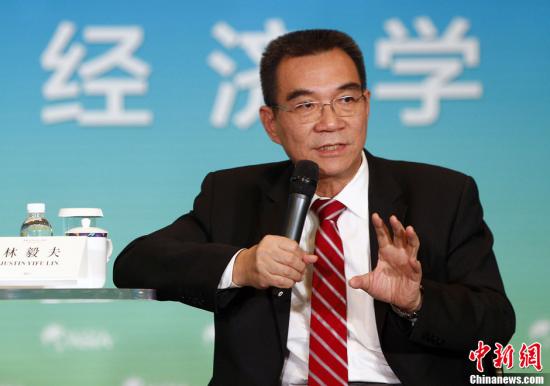Why I oppose opening capital account
- By Justin Yifu Lin
 0 Comment(s)
0 Comment(s) Print
Print E-mail China.org.cn, August 18, 2013
E-mail China.org.cn, August 18, 2013
Editor's note: The following article is a keynote speech delivered by Professor Justin Yifu Lin at a recent internal roundtable seminar held by the China Finance 40 Forum, an independent think tank composed of 40 elite practitioners from academic, governmental and professional institutions in the financial field. China.org.cn publishes an excerpt here.
|
|
|
Professor Justin Yifu Lin [Chinanews.com] |
Opening a capital account is a threshold that must be crossed in China's modernization. Yet it may be a very high one. Lessons from other developing countries have told us that crossing this threshold badly may trigger a crisis in a booming economy.
In the debate on opening China's capital account, I am an onlooker and a cheerleader, not an athlete. I have opposed it for the following reasons:
Opening capital account did not contribute to economic growth
I have focused on development economics and promoted my theory of New Structural Economics since I returned to China from the World Bank. From the point of view of development economics, the long term sustainable development of an economy must rely on technological innovation, upgrading industry and infrastructure as well as overall system restructurings. This progress requires investment; and investment in return requires capital.
Theoretically, developed countries have more capital but smaller returns than developing countries. The flow of capital from developed to developing countries supports technological innovation, industrial and infrastructure upgrading in the latter, which is mutually beneficial. However, Nobel laureate Robert Lucas observed that since the Second World War, more capital from developing countries has flowed into the developed countries, but not vice versa. This result is also known as the infamous "Lucas paradox."
Developing economies, which have the "advantage of backwardness," should develop more rapidly than developed countries through technological innovation and upgrading industry. However, according to a research project carried out by the Commission on Growth and Development, led by another Nobel Prize-winning economist Michael Spence, there are only 13 economies since World War II which have grown at an annual rate of at least 7 percent for 25 years or longer. Most of the developing economies fell into the traps of low- or middle-incomes.
The commission's research has also revealed five common characteristics among the 13 well-performing economies. One is a high rate of savings and investment. In fact, these 13 economies all benefitted from large savings and domestic investments during their periods of rapid growth. Japan, South Korea and Taiwan are obvious examples as they not only controlled the short-term flow of capital, but were not open to foreign investment and loans either. This means that a developing country which has a shortage of capital can encourage economic development by accumulating capital. Nevertheless, what is the precondition for this?
I have my own explanation in the New Structural Economics theory -- establishing competitive industries by effectively exploiting the comparative advantages which are decided by the factor endowment structure at a specific time point. This enables developing economies to occupy the largest overseas and domestic markets, and to have the highest profit and surplus. With a high surplus, developing economies can accumulate a large amount of capital for investment and have high rates of return. This forms a virtuous circle to support technological innovation, industry upgrading and infrastructure improvements, in order to boost economic growth.
Advantages and disadvantages of opening capital account
There are three major areas involved in opening a capital account: Foreign direct investment (FDI); loans between domestic banks and foreign banks or domestic enterprises directly borrowing internationally; and short term capital flow, consisting mainly of investment in securities.






